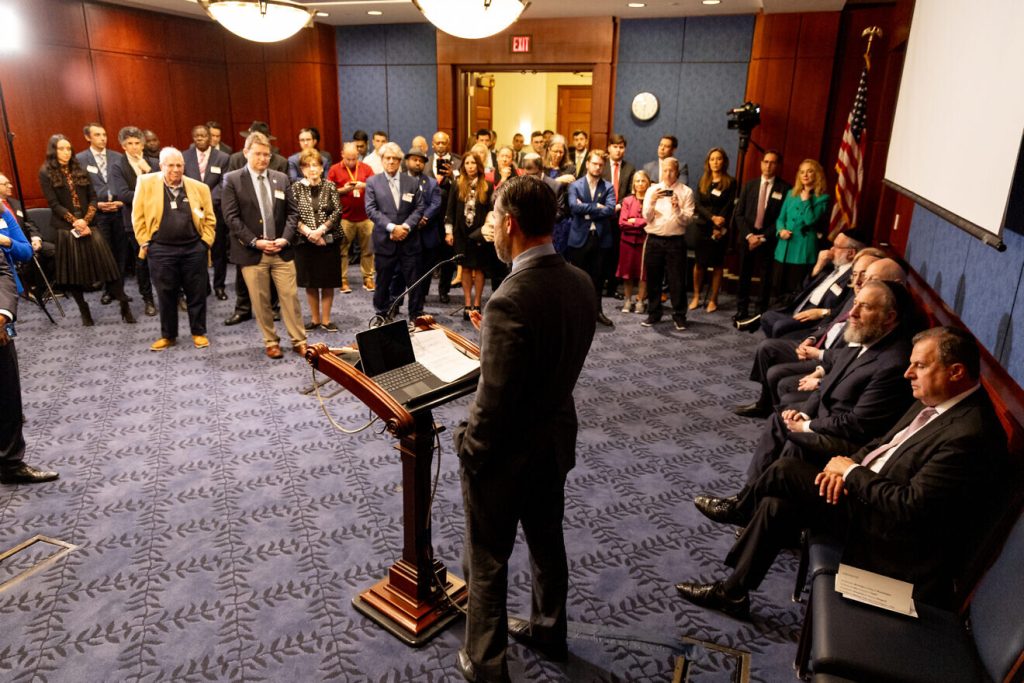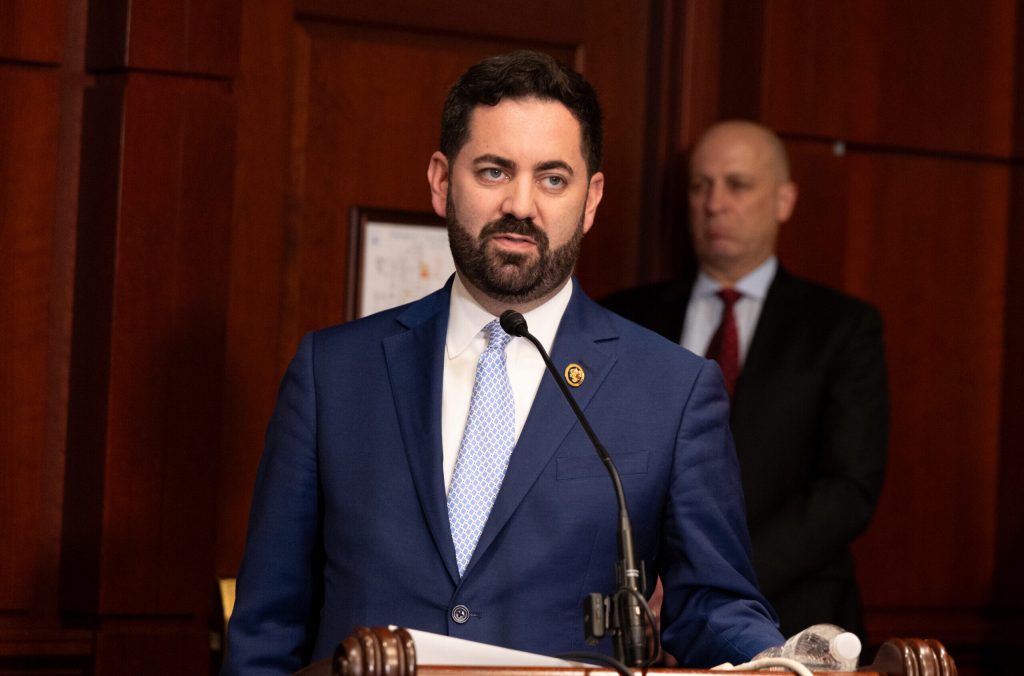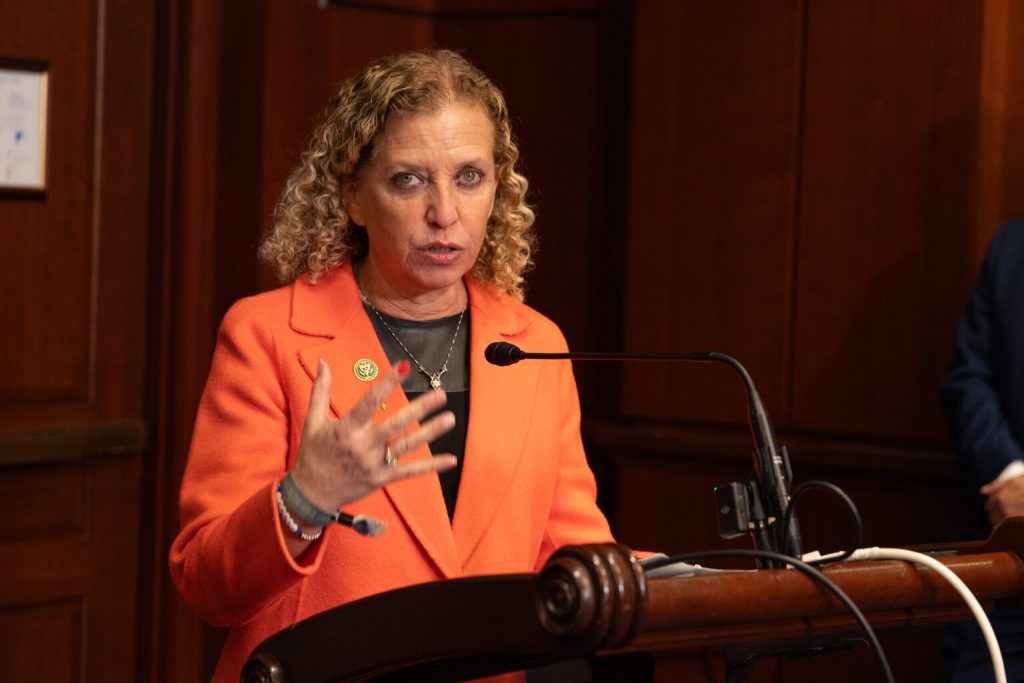Republicans Celebrate Abraham Accords Anniversary, Criticize Democrats for Stalling Progress

WASHINGTON, D.C. — On Tuesday night, an event at the U.S. Capitol marked the fourth anniversary of the Abraham Accords, historic agreements that normalized relations between Israel and several Arab states. According to the report published on the JNS, though the event was meant to be bipartisan, the glaring absence of most Democratic lawmakers prompted sharp criticism from Republican leaders, who accused the Biden administration and its party of undermining the transformative peace agreements.
The accords, brokered in the final months of the Trump administration, established diplomatic ties between Israel and the United Arab Emirates, Bahrain, and Morocco, with hopes of broader regional stability. Yet, as Republicans lauded the achievements of the agreements and laid out plans to expand them, they painted Democrats as disengaged and out of step on Middle East diplomacy.
Republican Optimism for Renewed Leadership
Rep. Mike Lawler (R-N.Y.) highlighted the stark difference in Middle East policy between the Trump and Biden administrations. “This administration has been so inept in dealing with the Middle East. We see the catastrophe that has resulted,” Lawler stated, pointing to the escalation of violence in the region. He expressed optimism about the return of Republican leadership, saying, “When the Trump administration comes back into power, I suspect that there’ll be great focus and attention on expanding the Abraham Accords again.”

Lawler praised Israel for standing firm in its defense strategies despite perceived lackluster support from Washington under Biden. “Had Israel listened to this administration, Hamas would be intact, Hezbollah would be intact,” he said.
Sen. Todd Young (R-Ind.) also emphasized the importance of proactive American leadership in the region. “The Trump administration recognized the possibilities … for more peace and more stability,” Young said. He criticized the Biden administration for failing to build on those efforts, describing its efforts as insufficient at best.
Bipartisanship in Question
Rep. Debbie Wasserman Schultz (D-Fla.) was the sole Democrat in attendance at the Capitol event, a fact that did not go unnoticed. While she announced plans to co-chair the Abraham Accords Caucus, her presence contrasted starkly with the broader absence of her party colleagues. Republicans attributed this to growing anti-Israel sentiment within the Democratic caucus.

Rep. John Rose (R-Tenn.) pointed out the deepening divisions within the Democratic Party on Israel policy. “There are elements of the Democratic Party that have an outsized influence on Biden,” Rose said, claiming this has hindered the administration’s commitment to expanding the accords. He described these internal divisions as “a cancer” that risks alienating the Jewish community and jeopardizing bipartisan support for Israel.
Rose expressed hope that Democrats would realign with their historical support for Israel, but added, “Recent events suggest that they aren’t.” He referenced the Democratic leadership’s failure to advance critical pro-Israel legislation, attributing the inaction to appeasing anti-Israel voices within the party.
The Abraham Accords: A Legacy of Success
The Abraham Accords have been hailed as one of the most significant breakthroughs in Middle East diplomacy in decades. The agreements opened new avenues for economic, security, and cultural cooperation between Israel and Arab states, setting the stage for further normalization in the region.
Republicans, led by figures like Sen. Kevin Cramer (R-N.D.), emphasized the importance of maintaining and expanding this legacy. Cramer described the current Middle East crisis as an opportunity to reassert strong U.S. leadership. “The violence since Oct. 7 has escalated the need for a strong America,” he said.
Jason Greenblatt, a key architect of the accords under Trump, urged policymakers to approach the situation with strategic patience. “As much as they want this relationship with Israel to be strong and consistent … they also have to worry about what’s happening in their own region,” Greenblatt said, acknowledging the challenges faced by Arab nations.
Criticism of Democratic Inaction
Throughout the evening, Republicans took aim at Senate Majority Leader Chuck Schumer (D-N.Y.) for blocking key pro-Israel bills, including the Antisemitism Awareness Act and anti-boycott legislation. “Schumer caved to liberal demands,” Lawler said, accusing the Senate leader of prioritizing party unity over bipartisan support for Israel.
While some Democrats, like Wasserman Schultz, attempted to champion the Abraham Accords, their efforts were overshadowed by what many Republicans see as the Biden administration’s failures. Wasserman Schultz praised the accords as “a framework for the future,” but her comments were met with skepticism from Republicans, who criticized the administration’s lack of decisive action.
Looking Ahead
As the Middle East continues to face challenges, Republicans are gearing up to reclaim the mantle of leadership on Israel policy and the Abraham Accords. With an eye toward 2025, they are focusing on revitalizing U.S.-led diplomacy and expanding the accords to include additional Arab nations.
The event underscored a growing divide in Washington on how best to approach Middle East policy. While Republicans celebrated the Abraham Accords as a testament to strong leadership and diplomacy, they argued that Democratic divisions and inaction have jeopardized the progress made over the past four years.
For attendees, the message was clear: Under Republican leadership, the Abraham Accords flourished. With renewed focus and bipartisan collaboration, they believe the vision of a more stable, peaceful Middle East can be realized once again.